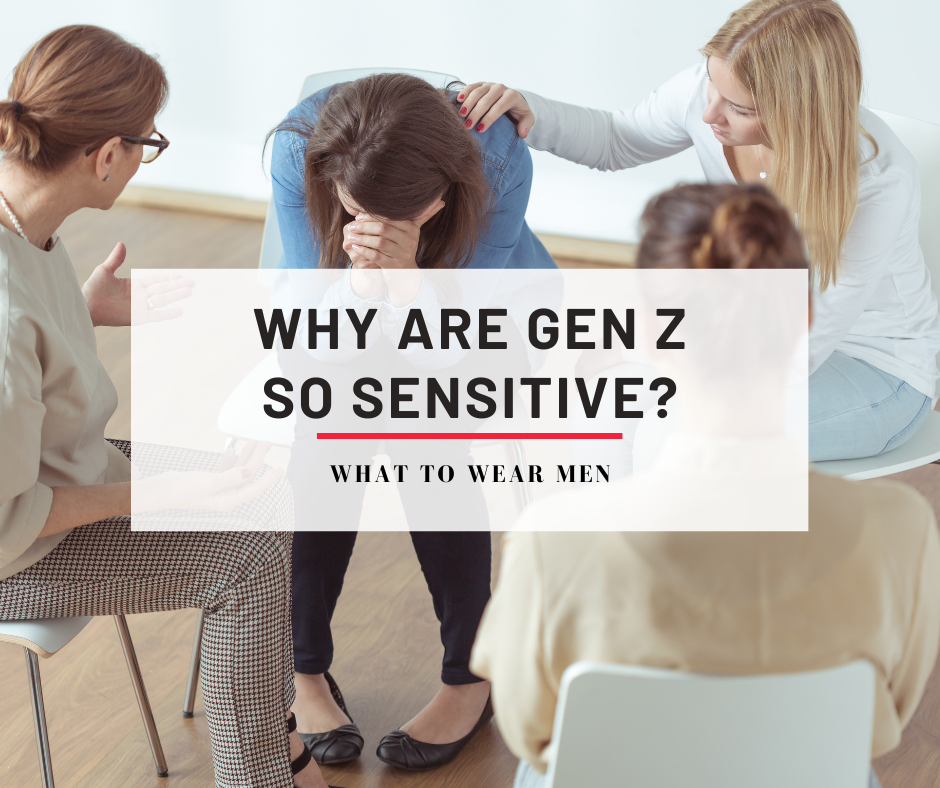Generation Z is entering the workforce in droves, bringing with them a fresh perspective, unique skills, and high expectations. However, recent reports indicate that many Gen Z graduates are being fired faster than their predecessors. What is causing this phenomenon, and how can it be addressed?
As the newest generation to join the professional world, Gen Z grads are often seen as digital natives, equipped with cutting-edge technical skills and a strong work ethic. Despite these advantages, statistics show that a significant number of them are let go from their jobs within the first year. This trend has sparked debates among employers, educators, and career experts, all trying to understand the root causes of this issue.
In this article, we will delve into the reasons behind why Gen Z graduates are fired quickly, explore potential solutions, and provide actionable advice for both employers and employees. By understanding the dynamics at play, we can create a more harmonious and productive work environment for everyone involved.
Read also:Jesiree Dizon Parents A Comprehensive Look Into Her Family Background
Table of Contents
- Understanding Generation Z in the Workplace
- Statistics Behind Gen Z Job Termination
- Key Reasons Why Gen Z Grads Are Fired
- Communication Challenges
- The Skills Gap in Gen Z Graduates
- Mismatched Expectations Between Employers and Employees
- Solutions for Employers and Employees
- The Role of Workplace Culture
- The Importance of Mentorship Programs
- The Future of Gen Z in the Workforce
Understanding Generation Z in the Workplace
Generation Z, typically defined as individuals born between 1997 and 2012, brings a distinct set of values, attitudes, and behaviors to the workplace. This generation grew up in a digital world, with constant access to information and technology shaping their worldview. While this has equipped them with valuable digital skills, it has also influenced their approach to work and career development.
One of the defining characteristics of Gen Z is their desire for immediate feedback and recognition. Unlike previous generations, they expect transparency and clear communication from their employers. However, this expectation can sometimes clash with traditional workplace norms, leading to misunderstandings and conflicts.
Unique Traits of Gen Z Employees
- Highly tech-savvy and accustomed to using digital tools
- Seeking meaningful work and purpose-driven careers
- Preferring flexibility and work-life balance
- Valuing diversity and inclusion in the workplace
Statistics Behind Gen Z Job Termination
Data from various studies and surveys highlight the alarming trend of Gen Z graduates being fired faster than other generations. According to a report by LinkedIn, 25% of Gen Z employees leave their jobs within the first month, while 40% leave within the first year. These numbers underscore the need for a deeper understanding of the factors contributing to this phenomenon.
A study conducted by Gallup further revealed that only 34% of Gen Z employees feel engaged at work, compared to 33% of Millennials and 29% of Gen X. This lack of engagement can lead to decreased productivity and, ultimately, job termination.
Key Reasons Why Gen Z Grads Are Fired
There are several reasons why Gen Z graduates are being fired at a higher rate than other generations. These reasons range from communication issues to skill gaps and mismatched expectations. Below, we explore the most significant factors contributing to this trend.
Lack of Adaptability
While Gen Z is known for its adaptability in technology, they may struggle to adapt to the traditional corporate environment. Many employers report that Gen Z employees have difficulty adjusting to hierarchical structures and rigid work schedules.
Read also:Meg Nutt Leaked Understanding The Controversy And Its Implications
Poor Time Management
Time management is another area where Gen Z graduates often fall short. With easy access to distractions such as social media and streaming services, they may find it challenging to stay focused on work tasks.
Communication Challenges
Effective communication is essential in any workplace, yet it remains a significant hurdle for many Gen Z employees. This generation tends to favor digital communication methods, such as texting and instant messaging, over face-to-face interactions. While this preference can improve efficiency in some cases, it can also lead to miscommunication and misunderstandings.
How Employers Can Bridge the Communication Gap
- Encourage open and honest dialogue between employees and managers
- Implement regular check-ins and feedback sessions
- Provide training on interpersonal communication skills
The Skills Gap in Gen Z Graduates
Despite their proficiency in technology, many Gen Z graduates lack essential soft skills, such as problem-solving, critical thinking, and teamwork. This skills gap can hinder their ability to perform effectively in the workplace and may contribute to their early termination.
Employers can address this issue by offering targeted training programs that focus on developing these crucial skills. By investing in their employees' professional development, companies can improve retention rates and foster a more skilled workforce.
Mismatched Expectations Between Employers and Employees
Another factor contributing to the high turnover rate among Gen Z graduates is the mismatch between employer and employee expectations. While Gen Z employees often prioritize work-life balance and flexibility, many employers still operate under more traditional models that emphasize long hours and face time in the office.
Strategies for Aligning Expectations
- Clearly communicate job requirements and expectations during the hiring process
- Offer flexible work arrangements, such as remote work options and flexible hours
- Regularly review and adjust policies to better meet the needs of all employees
Solutions for Employers and Employees
To address the issue of Gen Z graduates being fired quickly, both employers and employees must take proactive steps to bridge the gaps in communication, skills, and expectations. Below are some practical solutions for each party involved.
For Employers
- Implement mentorship programs to guide and support new hires
- Provide ongoing training and development opportunities
- Create a positive and inclusive workplace culture
For Employees
- Take initiative in seeking feedback and improving performance
- Develop essential soft skills through self-study and practice
- Stay open-minded and adaptable to new challenges and environments
The Role of Workplace Culture
A strong and positive workplace culture is crucial in retaining Gen Z employees. Companies that prioritize diversity, inclusion, and employee well-being are more likely to attract and retain top talent from this generation. By fostering a culture of trust and collaboration, employers can create an environment where Gen Z graduates can thrive.
Elements of a Positive Workplace Culture
- Encouraging open communication and feedback
- Promoting work-life balance and flexibility
- Recognizing and rewarding employee achievements
The Importance of Mentorship Programs
Mentorship programs can play a vital role in helping Gen Z graduates succeed in the workplace. By pairing new hires with experienced employees, companies can provide guidance, support, and valuable insights into the corporate world. This mentorship can help bridge the gap between academic knowledge and real-world experience, reducing the likelihood of early termination.
The Future of Gen Z in the Workforce
Despite the challenges faced by Gen Z graduates in the workforce, there is reason to be optimistic about their future. As companies continue to adapt to the changing needs of the modern workforce, they will likely develop new strategies and practices to better support this generation. By working together, employers and employees can create a more inclusive, productive, and successful work environment for everyone.
Predictions for the Future
- Increased adoption of remote work and flexible schedules
- Greater emphasis on employee well-being and mental health
- More opportunities for professional development and skill-building
Conclusion
In conclusion, the trend of Gen Z graduates being fired quickly is a complex issue with multiple contributing factors. By understanding the reasons behind this phenomenon and implementing practical solutions, both employers and employees can work towards creating a more harmonious and productive work environment.
We encourage you to share your thoughts and experiences in the comments section below. Additionally, feel free to explore other articles on our site for more insights into the modern workforce and career development.
Sources:
- LinkedIn Workforce Report
- Gallup Employee Engagement Survey
- Forbes: The Skills Gap in Gen Z



